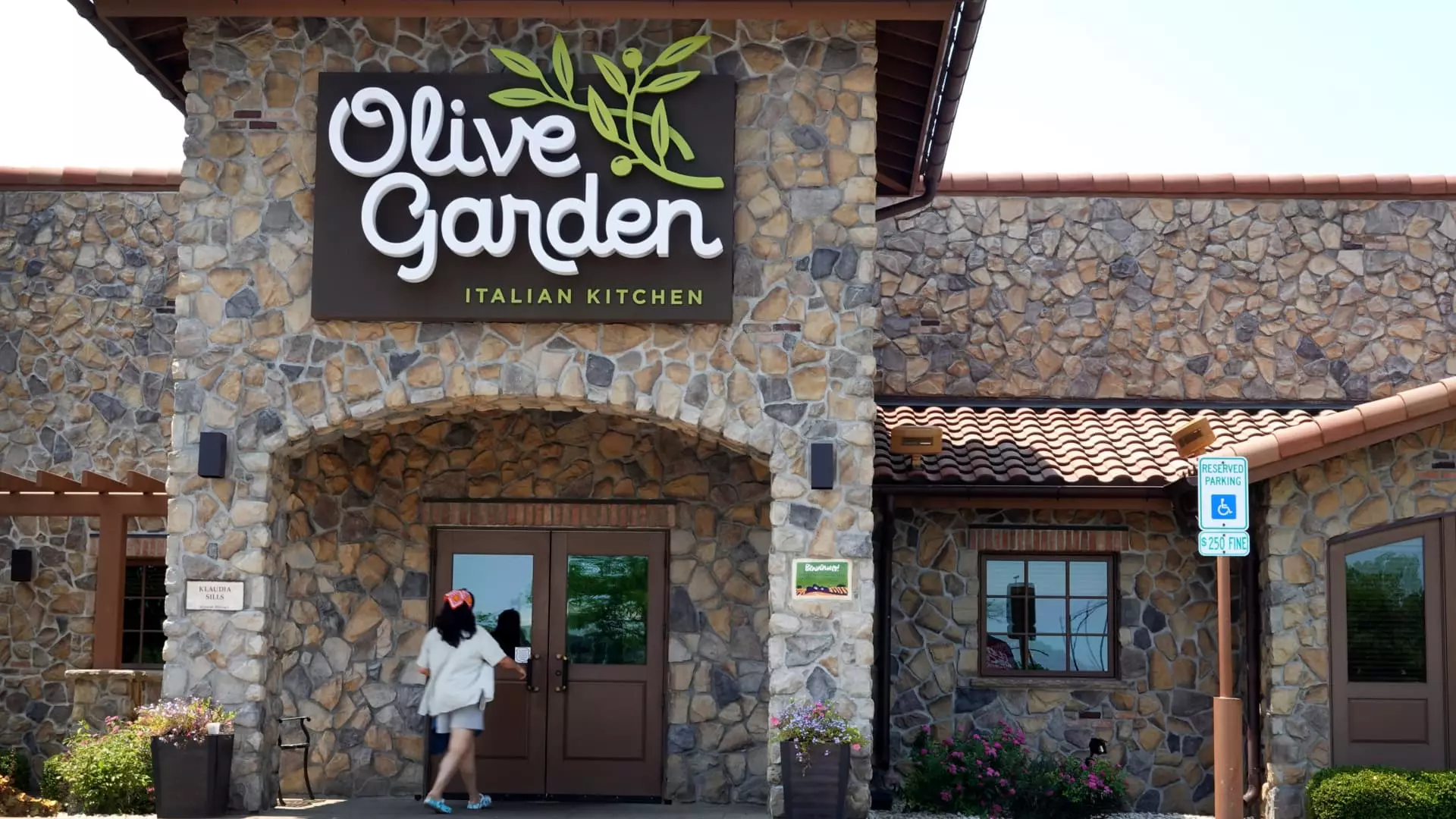Darden Restaurants recently released its financial results for the first quarter of fiscal 2024, revealing a disappointing performance that didn’t meet Wall Street’s expectations. Despite an increase in net income, driven in part by its overall revenue growth, the company struggled with declining sales at its flagship Olive Garden and other fine dining establishments, stirring concerns among investors and analysts alike.
CEO Rick Cardenas addressed the company’s struggles, remarking on his belief in the underlying strength of Darden’s business model. He underscored that while the company did not achieve its anticipated performance for the quarter ending August 25, he trusts the proactive strategies being enacted by brand teams to meet guest preferences without sacrificing the long-term growth of the company. His continued optimism is noteworthy, especially as market conditions shift and dining preferences evolve post-pandemic.
Financial Highlights: Mixed Results
In terms of specific numbers, Darden reported adjusted earnings per share (EPS) of $1.75, which fell short of the $1.83 forecasted by analysts. This disappointing figure, although a year-over-year increase from $1.59 per share, has raised eyebrows about the sustainability of the company’s earnings trajectory. Similarly, revenue reported at $2.76 billion also did not align with expectations of $2.8 billion. Despite these setbacks, it is interesting to note that Darden’s share prices saw a notable boost of approximately 10% in premarket trading, indicating that investor sentiment may be more forgiving than the raw numbers might suggest.
The company experienced a slight year-over-year annual sales increase of 1%, but a troubling decline in same-store sales by 1.1% highlighted deeper underlying issues. Particularly concerning were the steep declines at Olive Garden, where same-store sales plummeted by 2.9%, and fine-dining options like Eddie V’s and The Capital Grille, which faced a significant drop of 6%. These figures raise questions about customer retention and the effectiveness of Darden’s current promotional strategies.
Future Strategies and Expectations
In response to the sales decline, Darden is reevaluating its marketing and menu strategies. The return of the “Never Ending Pasta Bowl” at Olive Garden is one initiative aimed at enticing customers back to its dining experience. This promotional move signals that Darden is willing to innovate to regain traction, even in a competitive dining landscape.
However, amid these challenges, the company has sustained its optimistic outlook for the fiscal year ahead, confirming projections of earnings per share between $9.40 and $9.60, alongside net sales forecasted to be in the range of $11.8 billion to $11.9 billion. This confidence reflects a belief that, with the right adjustments and strategic initiatives, Darden can navigate through these trying times and emerge on a stronger financial footing.
While Darden Restaurants faces various obstacles, particularly within its notable brands, the company’s leadership remains enthusiastic about future growth. As customer preferences shift and the competitive landscape continues to evolve, how Darden adapts could prove crucial in determining its long-term success.

